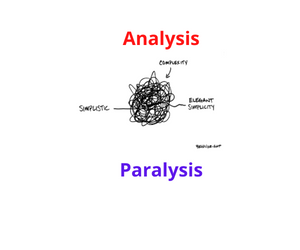The same for less or more for the same. That is one of the mantras of life in the financial services industry and probably in other ones too. The former could easily be re-stated as “save costs”. If you are in the Operational end of a bank, that goal is part of your diet, often wrapped up together under efficiency projects. As a veteran of that side of the business, I have done my share of these things. A few thoughts on the perils and pitfalls are the subject of this week’s Blog post.
The first cost saving effort I remember being involved in was at Salomon. At the time, International Operations was run out of New York by a gentleman called Joe Anastasio. Even that long ago Joe was a legend. The in-house stories were numerous, some even believable. So selective was Joe’s hiring, that the folklore said he had been called by the SEC and asked not to hire any more Italian Americans in the Back Office. Certainly it was true that if Joe had thrown a Wednesday afternoon BBQ for friends and family, there would have been maybe three people left in Operations to run the show. Running that show out of New York almost inherently added some inefficiencies to the processes and there was a certain tug-of-war between London and New York on the topic of what tasks should be performed where.
At one managers meeting, the London folks made some claims about savings that could be achieved by some process changes. “Bullshit,” was the counter claim by one of the Americans present, and the European Ops Head, Lynn Dukes, was despatched back to London to come up with proof. Not too uncomfortable, as Lynn availed himself of the pointy nosed plane with the swept back wings. Now in all businesses, shit flows downhill. So Lynn summoned in the manager that had made the claims of potential riches from cost savings, Nick Riley, and told him to come up with some detail and fast. Nick, long on the theory and short on the substance, called myself and another Kingsley Marten into his office. We were then told to go and find these savings and fast. Memory fails me as to what the original claims were, but we looked hard and we looked long, yet we could not find anything to get excited about and certainly not instantly. So, Nick had to ask for an extension. Back we went to our desks to try to figure out where we might find some cost savings.
A few long days went by, but try as we might, we could not find anything but the most trivial of improvements. Dejected, we ploughed on, looking at every angle. After about a week, we made a breakthrough. As I remarked in other posts, Solly was the king of the bond market, so we had a lot of bonds moving around. Many of those bonds settled thru Euroclear the ICSD (International Central Securities Depository), and a few settled domestically in what was then the Deutscher Kassenverein (now Deutsche Börse) and SICOVAM in France. Our discovery was one of timing; not of having taken over a week to find it, but realising that the timing of certain activities in the market had a significant impact on securities lending and the costs that go with it. Then and now the ICSD operated a automatic securities borrowing and lending programme. If you needed to borrow bonds to make a delivery, Euroclear would lend them to you automatically. That way you could deliver bonds and receive cash. This was particularly helpful if without being able to borrow, you would have some but not all of the bonds to deliver. At the time, markets were not as advanced as they are today; there was bond borrowing and there was a repo market, but the general default of the time was to have this automatic programme turned on. Understandably, Euroclear were not doing this for free and charged some quite hefty fees. One could easily compare this to the interest rates charged by credit card companies if you do not pay off your balance.
Now automation is not necessarily a good or a bad thing, but it really depends on the use to which it is put. You need to understand the rules. Our analysis work showed us that we did not really understand those rules and that lack of understanding was costing us fees that ran into the double digit millions. The automated programme that decided if Salomon needed a loan was being run in the middle of the afternoon, before the so called chaining process that brought in bonds from what was then Cedel, now Clearstream, and before the transit process was complete for positions being moved from domestic settlement in the Kassenverein and SICOVAM. The process was lending us bonds it looked like we needed, but before that was a sure thing. We were then receiving the bonds in and sitting on them before returning them. All for the usual fee plus expenses being paid to the nice folk at Euroclear. That technical challenge and some other process weaknesses were costing Solly in excess of $5mm a year. Serious money. So, we briefed our boss, Nick, who briefed his boss Lynn, who got on the Concorde back to New York and went off to present the findings to his boss, Joe. Myself and Kingsley were feeling somewhat chuffed and looking forward to working on fixing things. We were then very surprised when we heard that nothing was going to be done with or about the report. It had been noted with interest, but not much and promptly “deep sixed” as our American cousins would have it. Filed away in the filing cabinet for further attention in the fullness of time and at the appropriate juncture.
Lessons Learned: There are two equal valid observations one might make about this kind of discovery. The optimistic and the cynical. The former would have us delighted about the discovery, curious about the cost to fix it and the return on investment and keen to fix things. The cynical manager, almost in the style of David Brent in The Office, would worry that when they presented the issue to their boss, they would be subjected to the deceptive two-step. Step one, congratulatory, heaping praise on you for identifying the opportunity. The second, unexpected and often quite brutal would be the observation about previous failure: “So, the good news is you have found how to save all this money and the bad news, even though we pay you all this money, you have missed this for a number of years!” My experience is that the cynics often win out.
We were disappointed, but at least fortunate that our boss Nick Riley, valued our contribution. Nick went on to many great things and we have remained in touch since. With the wisdom of years and the fortune of hindsight, I would suggest that there are better chances of success when cost savings can be attributed to “new possibilities” and your pitch for resources avoids any slant that suggests you have discovered that the way things have been done for years is “basically f@@@ed up”. Perception, as we know, is reality.
Share on:



